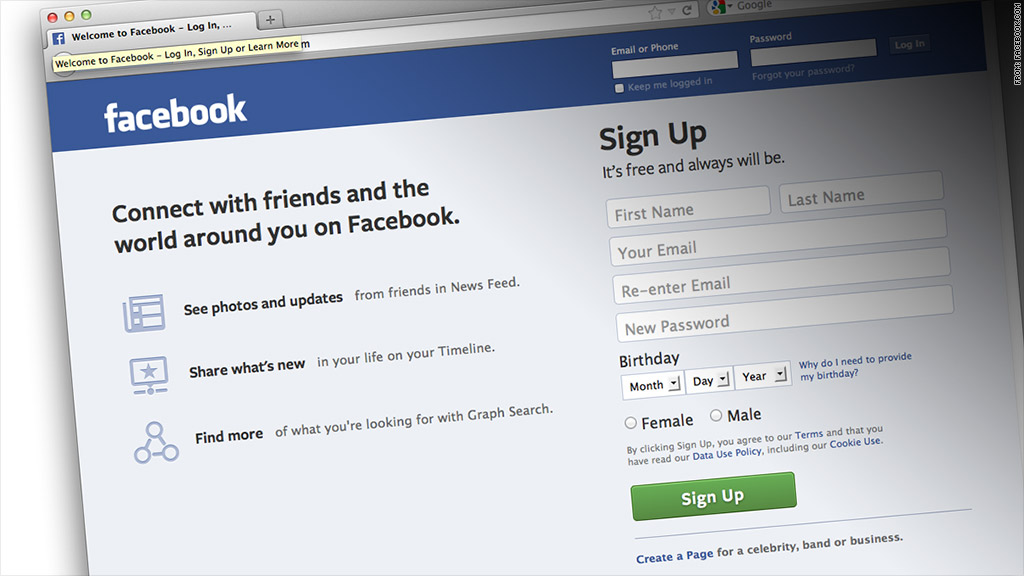
Choose your Facebook friends wisely; they could help you get approved -- or rejected -- for a loan.
A handful of tech startups are using social data to determine the risk of lending to people who have a difficult time accessing credit. Traditional lenders rely heavily on credit scores like FICO, which look at payments history. They typically steer clear of the millions of people who don't have credit scores.
But some financial lending companies have found that social connections can be a good indicator of a person's creditworthiness.
One such company, Lenddo, determines if you're friends on Facebook (FB) with someone who was late paying back a loan to Lenddo. If so, that's bad news for you. It's even worse news if the delinquent friend is someone you frequently interact with.
"It turns out humans are really good at knowing who is trustworthy and reliable in their community," said Jeff Stewart, a co-founder and CEO of Lenddo. "What's new is that we're now able to measure through massive computing power."
Related story: Millions without credit scores not so risky after all
A German company called Kreditech says that it uses up to 8,000 data points when assessing an application for a loan.
In addition to data from Facebook, eBay or Amazon (AMZN) accounts. Kreditech also gathers information from the manner in which a customer fills out the online application. For example, your chances of getting a loan improve if you spend time reading information about the loan on Kreditech's website. If you fill out the application typing in all-caps (or with no caps), you're knocked down a couple pegs in Kreditech's eyes.
Kreditech can determines your location and considers creditworthiness based upon whether your computer is located where you said you live or work.
The individual data points may not have meaning themselves, but can paint an good picture of the applicant when brought together, said Sebastian Diemer, a co-founder of Kreditech.
Another company, Kabbage, an online service that offers cash advances to small businesses, considers an owner's FICO score -- but only as one piece of a larger pie.
"We can get much better, faster data," said Marc Gorlin, Kabbage's chairman and co-founder.
Borrowers grant Kabbage access to their PayPal, eBay (EBAY) and other online payment accounts, disclosing real-time sales and delivery information. The company says it can determine a business' creditworthiness and put money into its account in just seven minutes.
Once a small business is getting credit from Kabbage, it also has the option to link up its Facebook and Twitter accounts to the site, which could provide a bump in its "Kabbage score." The small businesses that do are 20% less likely to be delinquent on their loans, Gorlin said.
"Someone who's paying attention to Facebook and Twitter channels to deal with customer service is more likely to be on top of other parts of their business, too, like inventory and shipments," he said.
Related story: Credit score killers
For now, many of these tech startups attract a niche group of borrowers. Kabbage targets small business owners who sell products online. Lenddo and Kreditech target middle-class individuals in emerging markets where credit is tight.
Lenddo has about 250,000 members, but it only operates in the Philippines, Colombia and Mexico. But others are larger in scope: Kreditech says it receives 1,000 applications per day and gives 10 million loans each year. Kabbage expects to provide 75,000 cash advances this year, ranging between $500 and $50,000 -- that's three times as many loans that the U.S. Small Business Administration gave last year.
Using "big data" to assess credit risk is on the verge of going mainstream. Kreditech has already began selling its technology to national online lenders in Russia and the Czech Republic. Gorlin said he hopes Kabbage will move into that space for lenders as well.
Some in the financial industry are skeptical about social data and online behavior being used as a kind of credit score. John Ulzheimer, a credit expert at CreditSesame.com, says social data aren't necessarily indicative of whether the borrower will pay back a loan on time. FICO only considers a handful of factors, but they are all "incredibly predictive of risk," Ulzheimer said.
There's also the potential to game the system. Consumers can easily control how many Facebook friends they have and tweets they write. The same cannot be said for what goes into their credit score.
"To me, using social media is a little bit dangerous," Ulzheimer said.

